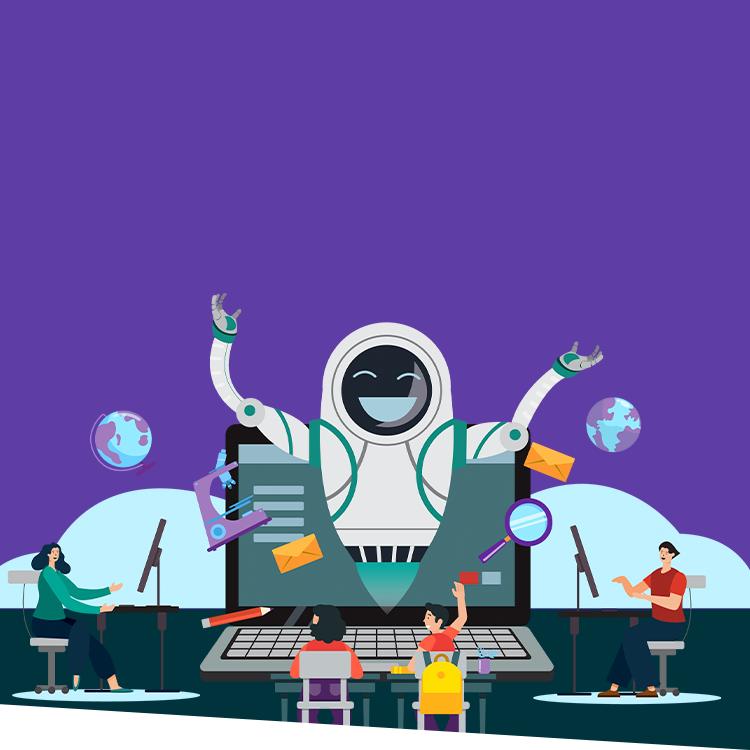We have been paying close attention over this past year as Artificial Intelligence (AI) has moved into mainstream life. It seems clear that humanity is entering a new era of knowledge and a new age of work.
While it is impossible to predict the long-term impact of AI in education, school leaders must understand AI has already altered the status quo. It is time to prompt and support important conversations about AI within our communities. AI may become the most consequential technology to emerge in the history of education, and we must engage with its impact while still possible to affect its influence in our schools.
How can AI help in education?
As a school leader heading into the 2023–24 school year, the first step is to publicly acknowledge to your community that AI in education raises genuine questions about the work of your school. Immediately engage your leadership team and faculty with practical questions before the school year begins. And remain mindful of them as AI’s use evolves in your community.
Consider these questions for discussion.
What is the schoolwide impact of AI in education on each stakeholder in our community?
- How can we foster an inclusive, ongoing and open dialogue between early adopters and advocates for AI?
- What about those who are reticent or want to protect tradition?
- What policies must we implement to regulate the impact of Al, serve our current community, and protect our future?
- What ethical dilemmas AI in education impose? What can we acknowledge and address now? And which must we continue discussing with stakeholders in the months to come?
Next, acknowledge that AI will force you to grapple with questions that challenge the way teaching and learning has been conducted. Maintain ongoing conversations with your faculty throughout the year with these questions.
- How can faculty begin to shift their teaching practice to blend AI-based work with more active, participatory, collaborative learning? Will this shift help students build the human social skills they’ll need to engage meaningfully in their future communities?
- As AI can now be used to complete traditional homework and assessment approaches, how can faculty envision more authentic and creative methods to combat this? AI is capable of analyzing, evaluating, and synthesizing (critical thinking) vast amounts of data, and completing high quality work in writing, math, and art. How can faculty leverage AI to create more personal learning opportunities in subjects and on topics that all students need? While simultaneously allowing students to follow their interests and pathways? Communicate to teachers there will be opportunity costs for students in schools that avoid integrating AI.
- How can faculty shift from teaching and assessing students’ ability to answer teacher questions, toward students’ ability to ask their important questions and interrogate claims and assertions? School must be a place where we teach students to think and question claims. Those who will thrive in an AI-based future will be the ones with sharp analytical thinking and the ability to use evidence to speak and write persuasively.
Future of AI in Education
Prioritize staying as up-to-date as you can about developments with AI. New and improved AI models seem to emerge weekly, if not daily. Grow your personal learning network to include a variety of industry leaders. This ensures you stay on top of trends that impact your current employees, students, and the jobs your future graduates will seek.
It is impossible to know with certainty what steps to take, but ignoring AI in education is not the answer. AI won’t go away, and if you ignore it, individual employees, teachers, and students will find ways to use it. And your ability to shape its use at your school will be lost.
ISM believes the best path forward includes asking the right questions in your community and staying open to all possible answers.
To learn more about AI, we’ve included a few ISM resources. We also recommend following news stories, and checking out these free, easy to understand resources.
1. Microsoft: Free course specifically designed for educators.
2. Coursera: Free course, AI for Everyone.
3. Udemy: Free course, AI Explained Easy.
ISM Resources
Does ChatGPT belong in the Classroom?
ChatGPT: The Game-Changing Technology for Private School Marketers





